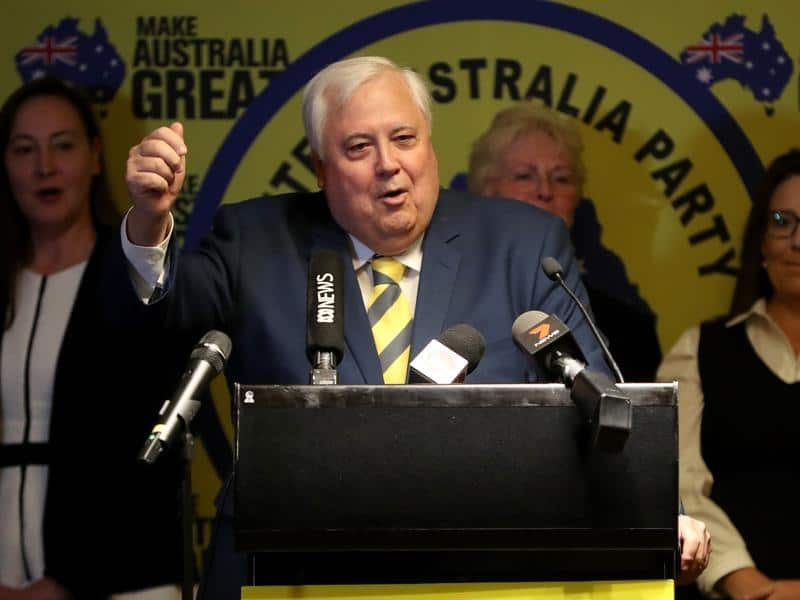Clive Palmer's attempt to delay the publication of early results on federal election night has been shot down by the High Court.
Mr Palmer wanted the detailed data kept quiet until all polling booths had closed, lest last-minute crowds in far-flung locations be swayed by the results.
He was concerned West Australian voters who left their run until the last two hours could be influenced by early figures from the eastern states.
But the full bench of the High Court ruled the Australian Electoral Commission does not need to wait for stragglers in WA before broadcasting indications in east coast seats.
"The court is unanimous in its view that the application should be dismissed," Chief Justice Susan Kiefel said on Tuesday.

Clive Palmer says results should not be released until the last polls in Western Australia have closed. Source: AAP
Why Palmer went to High Court
Lawyers for Mr Palmer were asking that only basic results be published until 9.30pm AEST on election day after the last polling booths in Western Australia have closed.
Mr Palmer argued releasing more detailed data earlier in the evening could influence people yet to vote.
He is worried that WA voters may be swayed by the perceived performance of his United Australia Party candidates in the eastern states.
Mr Palmer's case takes aim at the AEC's two-candidate preferred counting practice.
This is used on election night to give an early indication of results.
But the two candidates listed are almost always from Labor and the coalition, rather than the minor parties or independents.
Lawyers for Mr Palmer argue this practice favours the major parties, creates an appearance their candidates have greater authority and could misinform voters about the true state of the count.
David Jackson QC told the full bench on Monday people could be swept up in a "bandwagon effect" and vote for whichever party looks most likely to win.
Solicitor-General Stephen Donaghue downplayed the potential "bandwagon" effect.
Mr Donaghue said last-minute voters in WA voters could be influenced by many other factors, including basic voting figures and exit polls.
He also argued the federal election was not a presidential race, with people in WA voting for different local candidates than those on the east coast.


